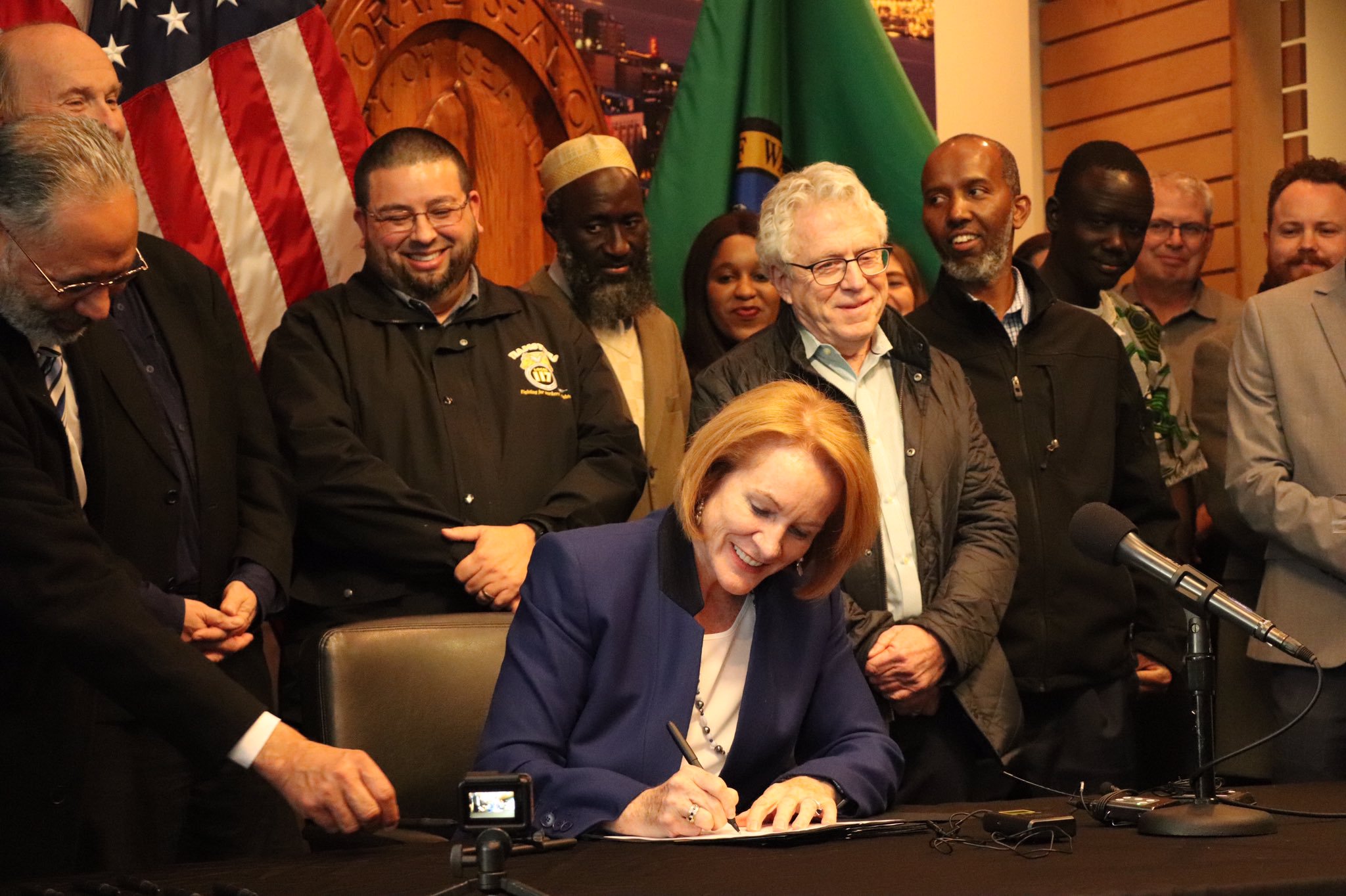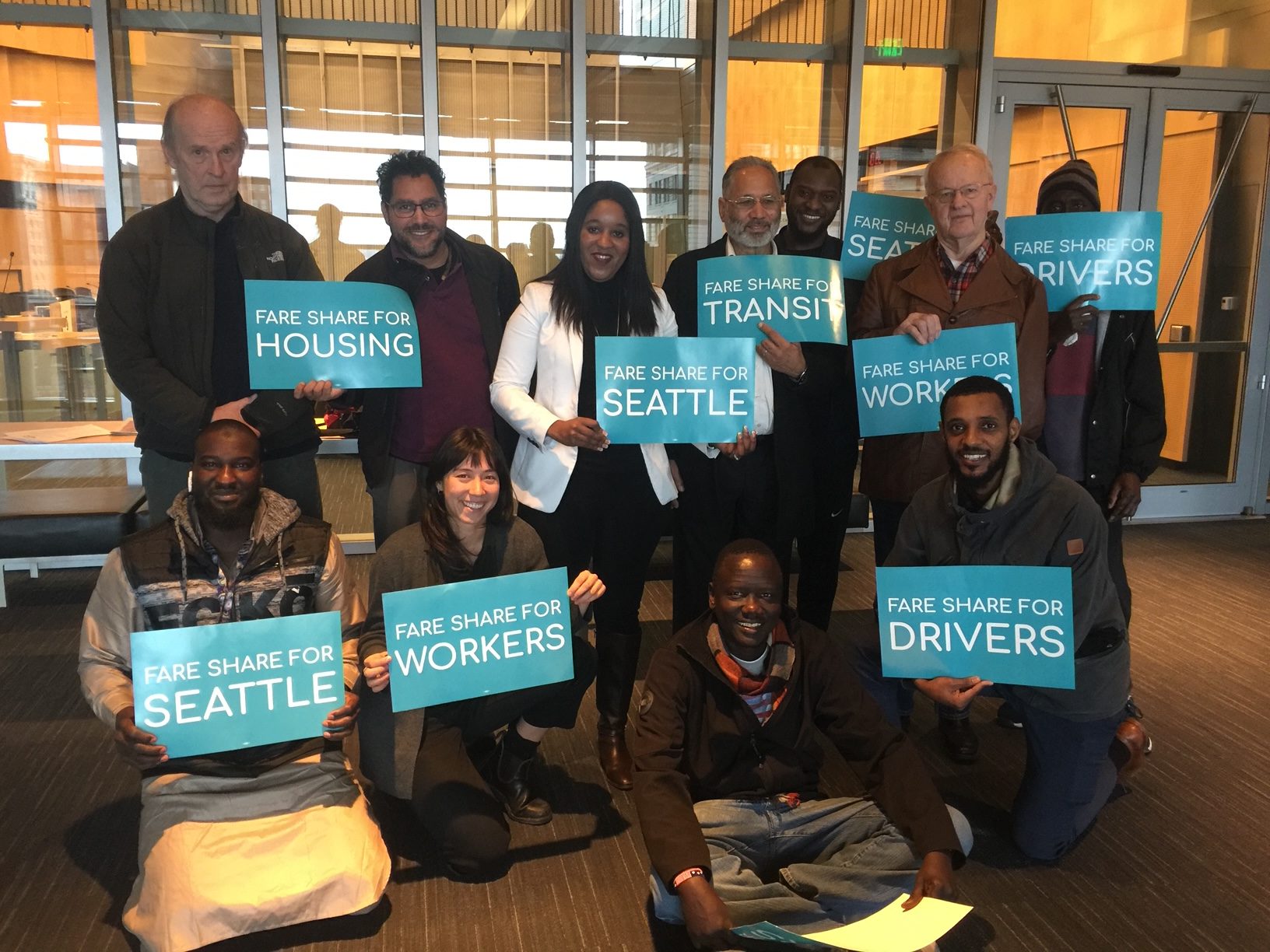
Coalition wins $56M to connect the streetcar; plus investments for transit-oriented housing and workers rights.
After months of negotiating, organizing and advocating, we are thrilled to celebrate the passage of the Fare Share legislation, a monumental coalition effort that invests in: workers rights for drivers in the gig economy, affordable housing near transit, and increased mobility options. After the Seattle City Council unanimously passed its final budget on Monday, November 25, Mayor Durkan signed the legislation into law Tuesday afternoon.
Throughout this process we have been grateful for leadership from Mayor Durkan and Seattle City Councilmembers, particularly Councilmembers González, Mosqueda, and O’Brien for championing this effort.
More than 60 organizations signed on as part of the Fare Share Coalition, representing the interests of housing, transit, labor, social justice, environmental, health, and community advocates. We are grateful for the leadership of the Lyft and Uber drivers who testified and showed up to City Council to share their stories and experiences.
Policy Recap
Mayor Durkan introduced the Fare Share proposal in September, which adds a 51 cent fee to all ride-hailing services, acknowledging the impact Transportation Network Companies (TNCs) are placing on our already strained roads and resources, and the absence of worker protections and fair wages.
Transportation: The 51 cent fee will support $56 million of investments over five years to fully fund the Center City Connector, which will link our two existing streetcar lines and improve downtown mobility. A few amendments were approved throughout the budget process, including supporting Seattle’s Transportation Equity Program, and funding projects that will make downtown Seattle safer and more people-oriented, such as the redesign of Thomas Street, and lighting improvements along the Market-to-Mohai route. After 2025, revenue will go towards transit, walking, and biking safety projects.
Housing: $52 million will fund affordable housing near transit that serves families and individuals making $15 – $25 per hour.
Drivers. The plan will develop long-sought worker protections for Seattle’s 30,000 Uber and Lyft drivers, including a fair wage after expenses and a first-in-the-nation Driver Resolution Center that will offer support services for drivers and fight against unwarranted deactivations.

What’s Next
Our work isn’t over. The City of Seattle is commissioning an independent wage study to determine a fair compensation rate by July 2020, and the ride-hail drivers will now play a key role in the development. Drivers and the people who get us where we need to go are a critical part of a safe transportation system, and they deserve security and dignity in their jobs. We will stand strong with our broad coalition as we continue to work with City Council and the Mayor’s office to develop worker protections and plan future transportation and housing investments.
Seattle is the fastest-growing city in the country over the past decade, causing rents to rise and increased congestion. The Fare Share plan is a big step towards addressing our region’s needs as Seattle continues to grow. We can ensure our region’s growth is working for everyone by investing in affordable housing near accessible and efficient transit, livable wages after expenses, and great worker protections. TCC looks forward to working in broad coalition and exploring holistic solutions that help solve our region’s biggest issues: affordable housing, abundant transportation, and good jobs.




